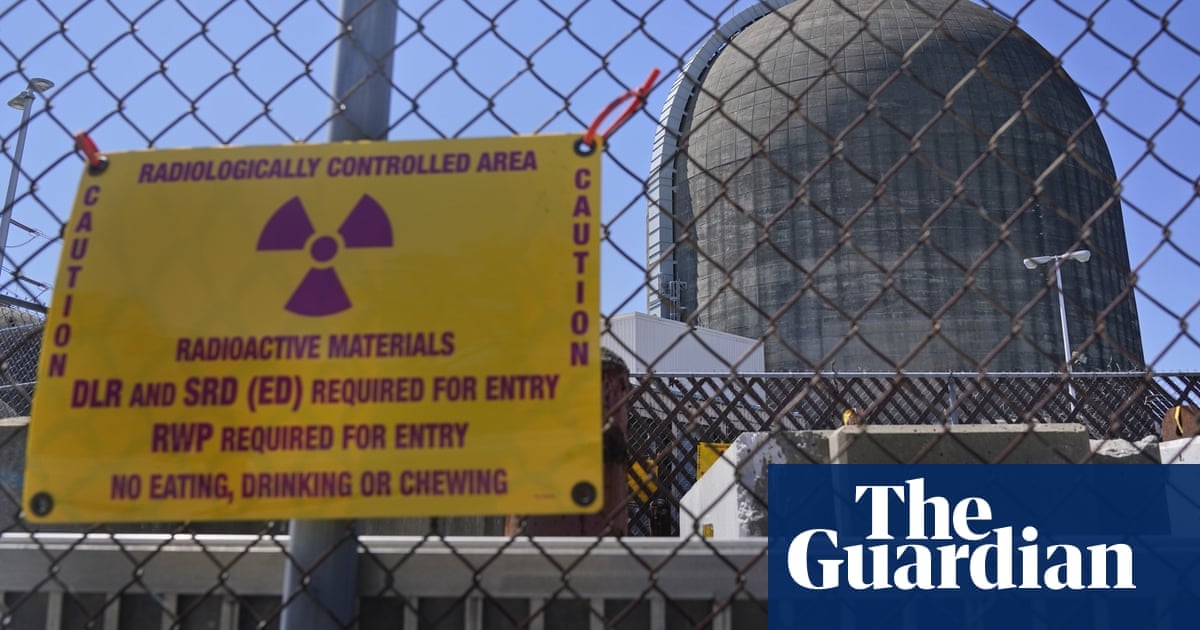Shuttering of New York facility raises awkward climate crisis questions as gas – not renewables – fills gap in power generation
When New York’s deteriorating and unloved Indian Point nuclear plant finally shuttered in 2021, its demise was met with delight from environmentalists who had long demanded it be scrapped.
But there has been a sting in the tail – since the closure, New York’s greenhouse gas emissions have gone up.
Castigated for its impact upon the surrounding environment and feared for its potential to unleash disaster close to the heart of New York City, Indian Point nevertheless supplied a large chunk of the state’s carbon-free electricity.
Since the plant’s closure, it has been gas, rather then clean energy such as solar and wind, that has filled the void, leaving New York City in the embarrassing situation of seeing its planet-heating emissions jump in recent years to the point its power grid is now dirtier than Texas’s, as well as the US average.



As someone who was vehemently pro nuclear, unfortunately we missed the boat. The time to invest heavy in nuclear was 50 years ago and instead we did the opposite. Renewables have caught up and nuclear is so far behind that it makes zero sense to build any new reactors when we can just build out more renewable power gen and battery storage for less money and without the whole nuclear waste handling problem.
Best time to plant a tree was 50 years ago. Second best time is now.
Sure, if we could snap our fingers and have a bunch of nuclear plants it would make sense. But the tech is all ancient, and the regulatory structure is oppressive. It will take decades to build out the amount of nuclear capacity we need and cost inordinate amounts of money, and we’ve already passed the tipping point where renewables are the better choice.
Just as an example, it took us 14 years to build a single reactor in the Vogtle plant costing over $30 billion dollars. We’d need massive reforms to the regulations and supply chain for building reactors to bring those numbers down and that just won’t happen fast enough.
Even China, who is the world leader in nuclear power these days is slowing down building of new reactors in favor of renewables, and they do not have the regulations and supply issues we have in the USA.
Please don’t be so defeatist.
I wouldn’t call it defeatist, nuclear should never be more than a stopgap to 100% renewables. if anything, it’s awesome that we’ve gotten far enough with renewables that switching to them entirely is now a viable proposition. It sucks that we spent so much time dependent on fossil fuels when we could’ve been using nuclear, but the past is the past and the future is bright.
I will say, small modular reactors might have a place in the energy mix. They would be fantastic for more isolated grids where stability is difficult to achieve with 100% renewable energy. Think small island nations or remote areas. Also would be good for emergency and disaster recovery scenarios. We (as in the USA) also already have the supply chain to build them somewhat efficiently since we use them on our aircraft carriers. Just needs some tweaking to work well on land and for the regulations to loosen up to make it economically feasible.
Battery tech isn’t there yet, the production and sourcing isn’t green enough and the assurances aren’t there
A few years ago you would be right but we’re just about there, especially once sodium ion batteries become more mature which is definitely going to be a “next few years” thing, not a speculative maybe it’ll happen someday thing. There’s also ways to store power other than chemical batteries, like pumped storage hydro.